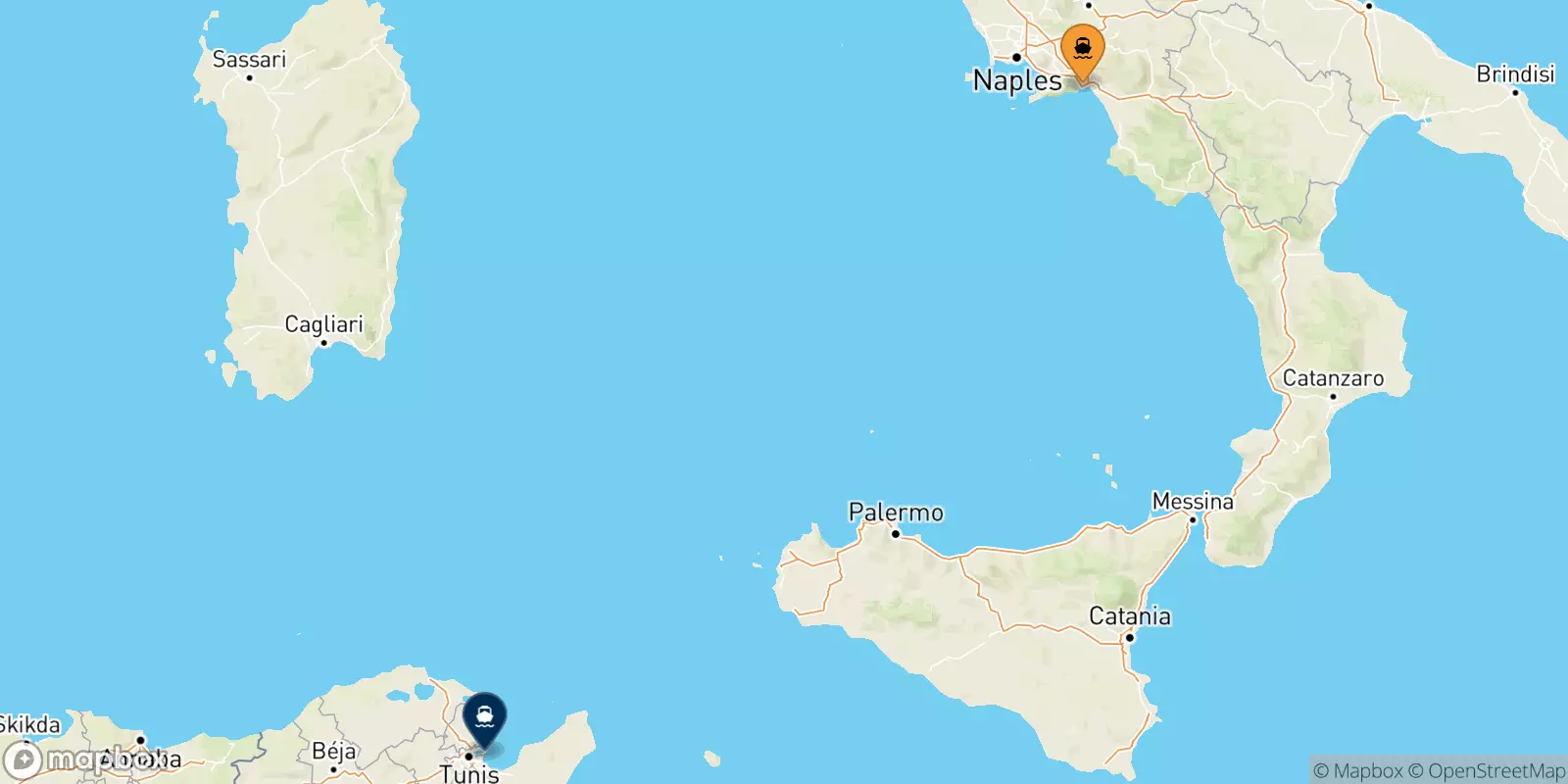Ferries from Salerno to Tunisia
Offers, Timetables and Prices


Are you trying to find out how to get to Tunisia? Find the best ferry from Salerno to Tunisia with our Tunisia ferry booking service. Our pages provide you with all the information on your trip to Tunisia from Salerno including prices, schedules and travel times.
The ferry lines between Salerno and Tunisia are served by the maritime company Grimaldi Lines with a schedule of 2 weekly connections with primarily afternoon departures and maximum duration of 26 hours 30 minutes. If you need to bring your vehicle on board, you have many options thanks to the cargo capacity of the ships operating on this crossing. Various services and accommodation are available to provide you with comfort on board. You can enjoy a meal at the self service restaurant or in your cabin.
Book your ferry now with ease: NetFerry will find the best solution for you!

Salerno, in the Tyrrhenian Sea, is an important commercial port in Italy. Always overshadowed by the nearby port of Naples, it was only in the 1970s that it regained its position winning recognition by the EU for safety levels. The port has a high number of passengers and freight passing through and the cruise industry is rapidly developing there. There are daily connections departing from Salerno for Sicily. How to reach Salerno The passenger terminal is located in the city center, if you come by car from Naples along the A3 motorway you can take the exit Vietri sul Mare. If you come fr... [More information]
Address: Via Ligea, Salerno, Italy
Directions: Google Map @ Salerno, port
Tunisia, in North Africa, is on the coast of the Mediterranean. It is believed that its name translates from Berber as "place to spend the night". History Tunisia has been inhabited since prehistoric times, there was evidence of human presence as far back as the Paleolithic period. Berber tribes were Tunisia's first known inhabitants. To quickly summarise millennia of Tunisian history, the period between the 12th and 14th century was pivotal and characterised by clashes between the sedentary Berbers and nomadic Arabs. The complex relationship between these two cultures continues today and has ... [More information]